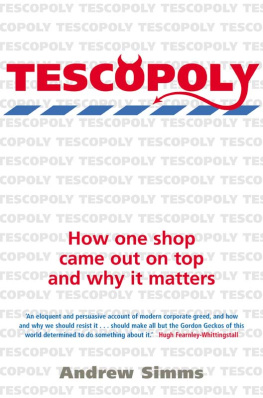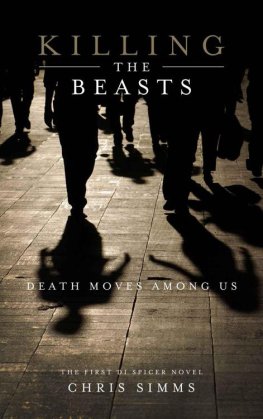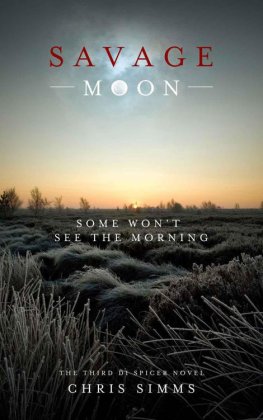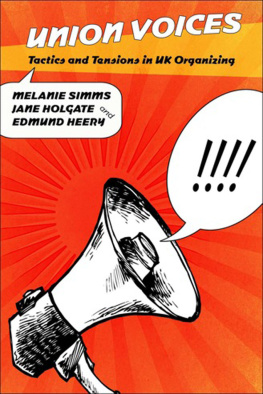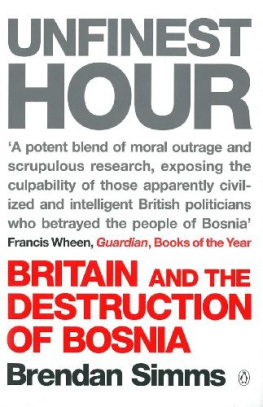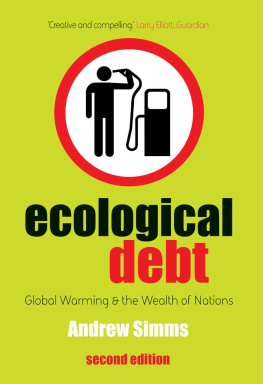Andrew Simms is Policy Director of nef (the new economics foundation), an award-winning UK think-and-do tank. For several years he worked for international development charities and was one of the original campaigners for the Jubilee 2000 Coalition debt relief movement. In a series of groundbreaking reports on Ghost Town Britain and Clone Town Britain, Andrew led a re-examination of the fate of the UKs local economies that both defined these phenomena, coining new terms, and changed the debate on the impact of mass retailing.
He is the author of Ecological Debt: The Health of the Planet and the Wealth of Nations. His other publications include numerous reports on climate change, globalization and localization, international development issues, debt, corporate accountability, GM food and tackling hunger. He lives in London with his wife, daughter and bicycle.
Constable & Robinson Ltd
5556 Russell Square
London WC1B 4HP
www.constablerobinson.com
First published in the UK by Constable,
an imprint of Constable & Robinson Ltd, 2007
Copyright Andrew Simms, 2007
The right of Andrew Simms to be identified as the author of this work has been identified by him in accordance with the Copyright, Designs and Patents Act, 1988.
All rights reserved. This book is sold subject to the condition that it shall not, by way of trade or otherwise, be lent, re-sold, hired out or otherwise circulated in any form of binding or cover other than that in which it is published and without a similar condition including this condition being imposed on the subsequent purchaser.
A copy of the British Library Cataloguing in
Publication Data is available from the British Library
ISBN: 978-1-84529-511-0
eISBN: 978-1-78033-740-1
Printed and bound in the EU
To my daughter, Scarlett Iona Snow,
in hope of a world as alive, surprising
and beautiful as you are.
Contents

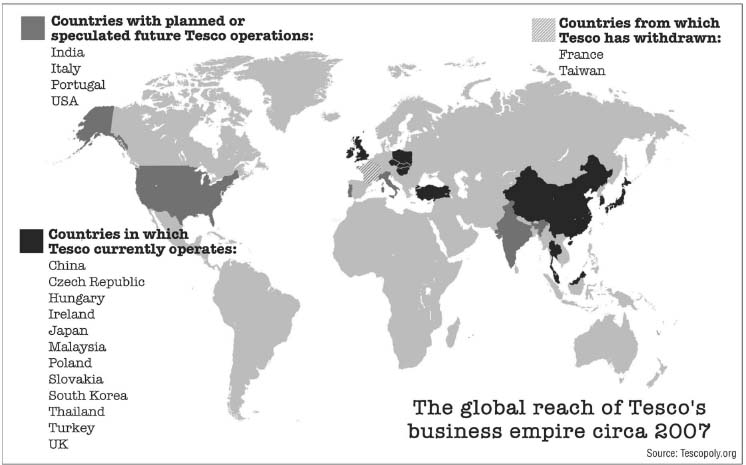
Acknowledgements
Thanks are due to Rachel Maybank and Scarlett for happily abandoning me in my room to get on with writing; to June and David Simms, as ever; to David Boyle, Nick Robins and Ruth Potts for being good and interested friends and drawing lots of information to my attention and to Ruth in particular, for help with research on . Thanks also to Judith Whately, Jacqui Mackay and Josh Gilbert who, along with Vicki Hird, made the Tescopoly website happen; to Vicki again, and to her colleagues Robin Webster and Sandra Bell at Friends of the Earth, for their consistent and excellent work to expose the liberties taken by the big retailers. Alain de Botton kindly gave me his thoughts, as did Stan Thekaekara and Colin Tudge. Becky Hardie at Constable & Robinson said the right things at the right time, and was probably as astonished as I was that I wrote the book in time.
Guy Rubin, John Taylor, Petra Kjell, Corrina Cordon, Stewart Wallis, Elna Kotze, Lindsay Mackie, Dan Keech, Liz Cox (and, in fact, all my friends at nef) are the kind of colleagues you hope for: thoughtful, enthusiastic and committed. The team working on well-being Nic Marks, Sam Thompson, Saamah Abdallah and Nicola Steuer is doing some of the most important work in economics at the moment. Stacy Mitchell at the Institute for Local Self-Reliance in the US is taking on bigger adversaries; good luck. Molly Conisbee, Julian Oram and Jessica Bridges-Palmer were at nef when a lot of this really started and still share the vision. Pat Conaty, Larry Elliott, Rosie Boycott, Ann Pettifor, Felicity Lawrence, Jack Clarke, Joanna Blythman, Jonathan Prynn, Alison Hogg, Mark Brozel, James Marriott, David Woodward, Rina Hossain, Peter Maybank, Maureen Maybank, Sue Carter, Tom Pilston, John Broad and Deborah Doane all helped in different ways.
A guitarist I heard busking in the London Underground called Carlos Herrera sold me a CD that I have listened to dozens of times while writing; thank you, you play beautifully. Everyone at the Marsh Farm project in Luton, and Ben Patten, Graeme Fisher, Amy Higgs, George, Monika and all who sail in Trinity Stores, Balham, are among the thousands making available the myriad alternatives to the supermarkets. To everyone else who helped, you know who you are; thank you.
Alexander the Great, King of Macedonia, once ruled much of the world known to ancient Western civilization. He rolled over resisting tribes and cities from the Danube to Greece, and was welcomed as the ruler of Egypt. After spilling lots of blood in the city of Thebes, the humbled Greeks invited him to lead their war against Persia. When Alexander accepted, a crowd of notables, politicians and philosophers came to ingratiate themselves and offer congratulations; but the well-known philosopher Diogenes was not among them. He was a thinker in the Greek Cynic tradition the word is not meant here in its modern sense of pessimistic and bitter, but describes one whose ethics told him to live in accordance with nature and to exhort reason, self-sufficiency and freedom. Curious, Alexander sought out Diogenes and found him sunbathing. Approaching with utmost courtesy and politeness, the king asked him if there was any favour he could grant him. Yes, replied the philosopher, you can get out of my light.
INTRODUCTION
Every Little Helps
Here are two apples
in one I smell the meadow
the second, nothing
It can take a North American to tell you about the ground beneath your feet. Every Christmas, British families gather to take part in a cultural tradition not the token visit to church, the family argument or the orgy of materialism, but a ritual of anti-corporate awareness-raising. This is the true history of the iconic game of Monopoly as Francis Moore Lapp, author of the classic 1971 book Diet for a Small Planet, pointed out in a casual conversation. Each Christmas holiday, having forced reluctant parents and siblings into playing the game, I would sit smugly grasping my wad of fake banknotes behind rows of streets lined with houses and hotels. Either that, or I would bewail my fall into poverty and landless destitution. I took it to be what the games modern-day manufacturers see it as: a celebration of brutal, winner-take-all markets. As the rules said, The idea of the game is to buy and rent or sell property so profitably that one becomes the wealthiest player and eventually monopolist.
Unsurprisingly perhaps, growing up in suburban Essex, I didnt come across the fact that the game was actually invented by a Quaker called Elizabeth Magie-Phillips in 1903 to teach the evils of land speculation and the tendency of badly regulated markets to create monopolies. Lizzie Magies early game had properties called Beggarmans Court, Lonely Lane, Easy Street and, curiously, Slambang Trolly. If you trespassed on Lord Bluebloods estate, you went to prison. Another corner of the board had a Poorhouse. In place of the now-usual stations and utilities, in a nod to the concerns of her time about robber-baron businessmen, there were coal- and oilfields, farmlands and forests. Income for basic goods could be collected on squares marked absolute necessity. Before being swiped by a sharp sales rep during the Great Depression and sold as his own idea to a games manufacturer, the game acquired folk status among Quaker communities. Many developed their own variations of the rules and street names, but all the early players understood the games true purpose.
Next page
